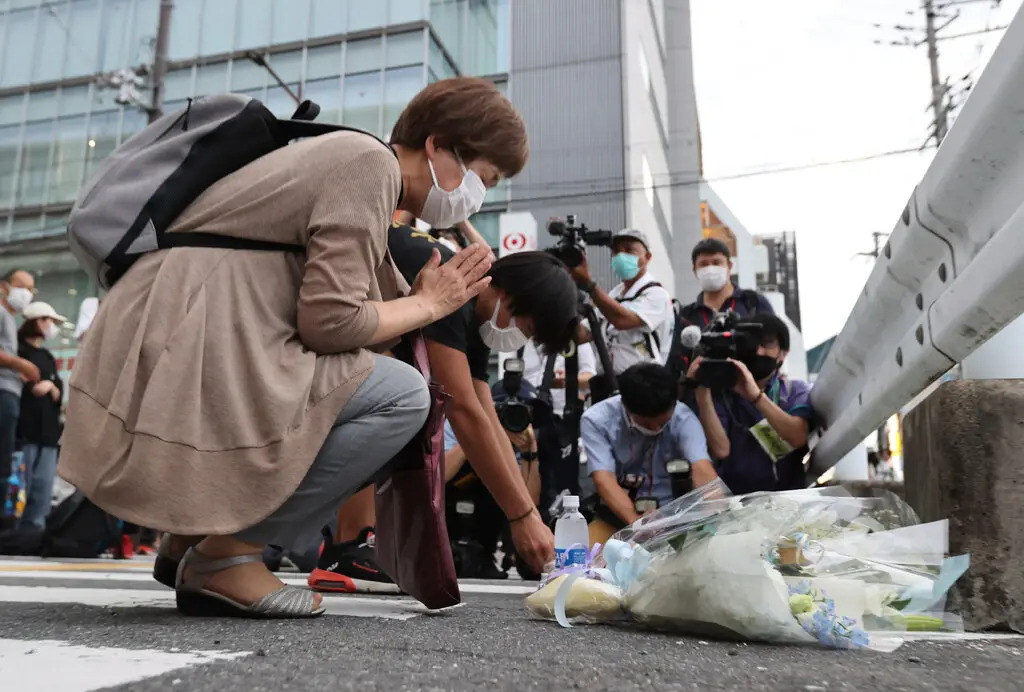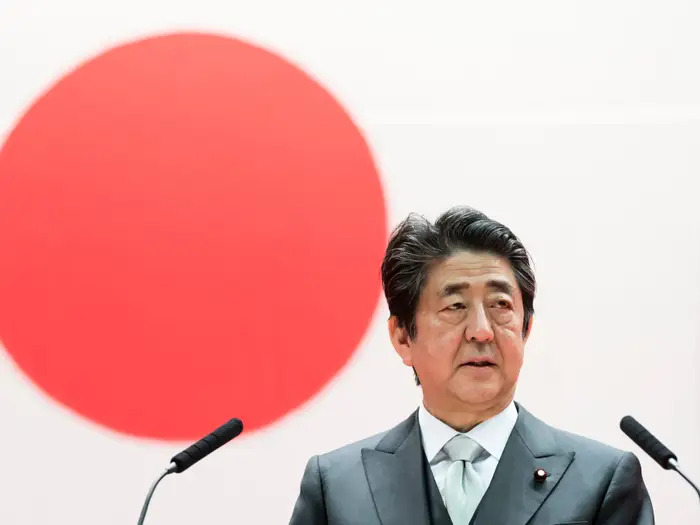Former Japan Prime Minister Shinzo Abe Dies After Assassination During Campaign Speech
Shinzo Abe, 67, the longest-serving prime minister of Japan, was shot and killed on Friday. He was out supporting a candidate for the upcoming elections. Prior to the news of Mr. Abe's passing, the police detained a suspect, Tetsuya Yamagami, 41, on an initial accusation of attempted murder.
Author:Alex MercerReviewer:Nathanial BlackwoodJul 09, 202216 Shares374 Views
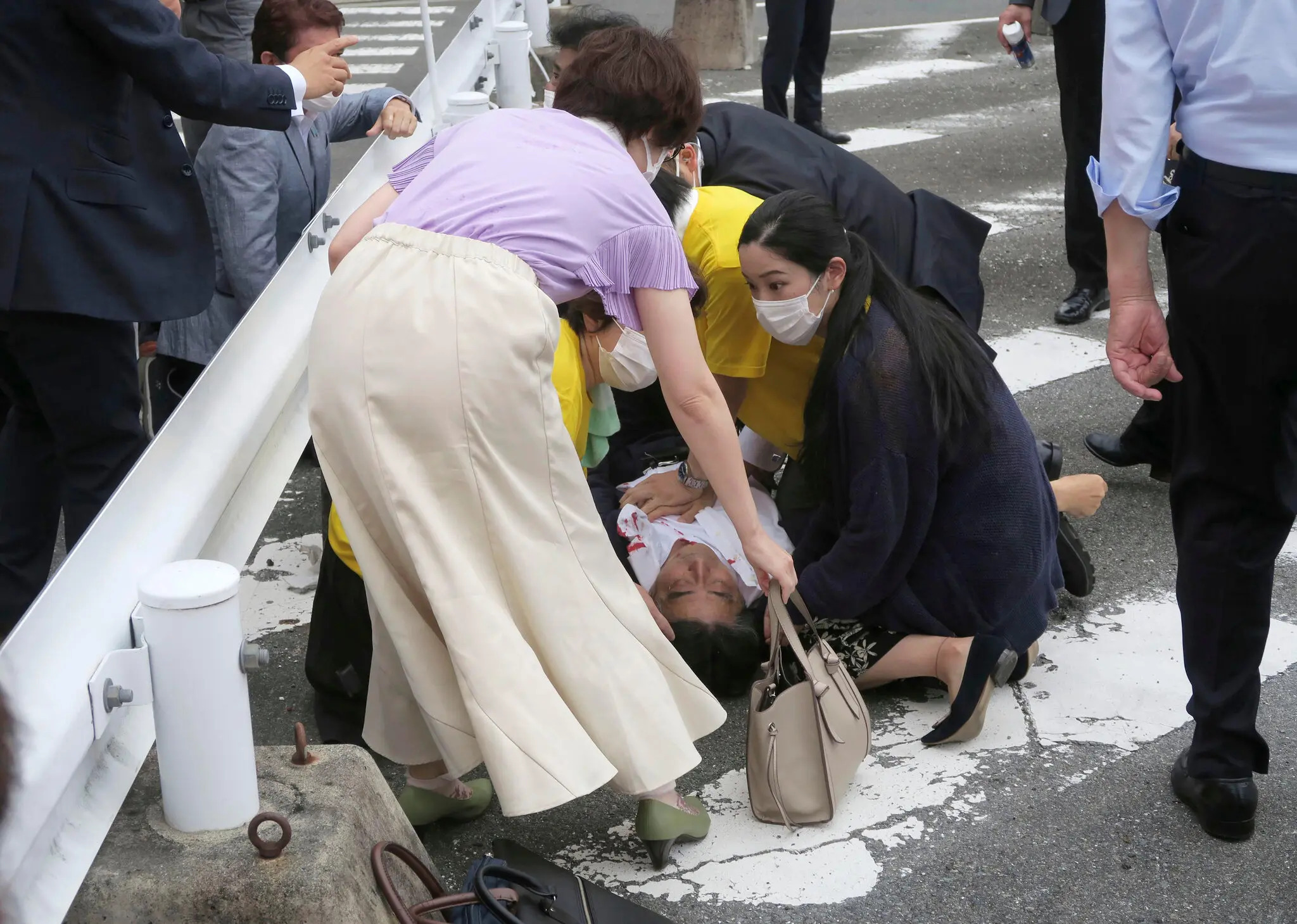
Shinzo Abe, 67, the longest-serving prime minister of Japan, was shot and killed on Friday. He was out supporting a candidate for the upcoming elections.
Prior to the newsof Mr. Abe's passing, the police detained a suspect, Tetsuya Yamagami, 41, on an initial accusation of attempted murder.
According to the Japanese Fire and Disaster Management Agency, Mr. Abe suffered gunshot wounds to his left chest and right neck. Social media footage depicted Mr. Abe, 67, lying bleeding on the ground in the western city of Nara, close to Kyoto.
Mr. Abe was declared dead at the hospital shortly after 5:03 p.m. local time, according to Hidetada Fukushima, professor in charge of emergency medicine at Nara Medical University Hospital.
According to Dr. Fukushima, Mr. Abe was brought to the hospital around 12:20 p.m. with no indications of life. He claimed Mr. Abe had two gunshot wounds.
The former Japanese leader was shot "deep enough to reach his heart," according to the doctors, and the medical staff was unable to stop the bleeding.
Dr. Fukushima claimed that despite transfusions and attempts to control the bleeding, doctors were unable to revive him.
Before Mr. Abe's passing was revealed, Prime Minister Fumio Kishida described the attack as a "heinous act." He added,
“„It is barbaric and malicious, and it cannot be tolerated.
Kei Sato, a 43-year-old member of the Liberal Democratic Party from Nara who was seeking reelection to the Upper House of Parliament, was the subject of Mr. Abe's speech during the campaign. Less than a minute had passed since Mr. Abe began speaking when he heard two explosions behind him.
The L.D.P.'s local chapter's Secretary General, Yoshio Ogita, 74, was standing next to Mr. Abe. He claimed to have witnessed a white smoke plume ascending into the sky and heard two loud noises.
He admitted that Friday afternoon during a phone conversation, "I didn’t know what had happened. I saw him collapse."
After the gunfire in the area of Yamatosaidaiji Station, pictures posted on social media showed a guy being tackled. The Japanese channel NHK stated that the man was a Nara resident. The cops claimed to have found a primitive weapon.
Abe served as Japan's longest-serving prime minister and the previous head of the Liberal Democratic Party from 2006 to 2007 and again from 2012 to 2020 before stepping down for health concerns. Since leaving office, he has continued to be well-known and frequently makes media appearances to address current events.
Prior to the Sunday Upper House elections, Abe was giving a speech in Nara city in support of LDP candidates when the incident occurred.
The public broadcaster showed a video of Abe speaking to a small group of people in front of Yamatosaidaiji railway station just before the shooting. Two shots may be heard in later videos, and smoke can be seen rising.
According to NHK, a suspect, Tetsuya Yamagami, a local guy in his 40s, was detained and charged with attempted murder. According to NHK, he was detained for questioning on Friday at the Nara Nishi police station.
"This is not a forgivable act," Japan's Prime Minister Fumio Kishida stated in a press conference on Friday, adding that he will "take appropriate measures."
People had gathered around the former leader as he lay in the street, according to photos taken at the time. His white clothing looked to have blood spots on it.
Helicopter transport brought him to the hospital, where doctors launched a last-ditch effort to save his life. According to NHK, which cited police, he was reportedly shot twice, once in the chest and once in the neck.
Eyewitnesses See A Man With A Gun
Eyewitnesses claimed to have observed a man fire twice at Mr. Abe from behind while holding what they characterized as a heavy gun.
Security personnel apprehended the attacker, who made no attempt to flee, and took his allegedly homemade gun into custody.
Tetsuya Yamagami, a resident of Nara, has been named as the suspect. He is reportedly thought to have served in Japan's Maritime Self-Defense Force, which is the country's version of the Navy.
As Japan's upper house elections are scheduled for later this week, Mr. Abe's address was part of a campaign for his old party, the Liberal Democratic Party.
Later, according to local accounts, ministers around the nation received instructions to return right away to Tokyo.
The hashtag "We want democracy, not violence" was trending on Japanese social media, with many users expressing their anger and outrage at the incident.
Several Videos Capture Attack On Abe
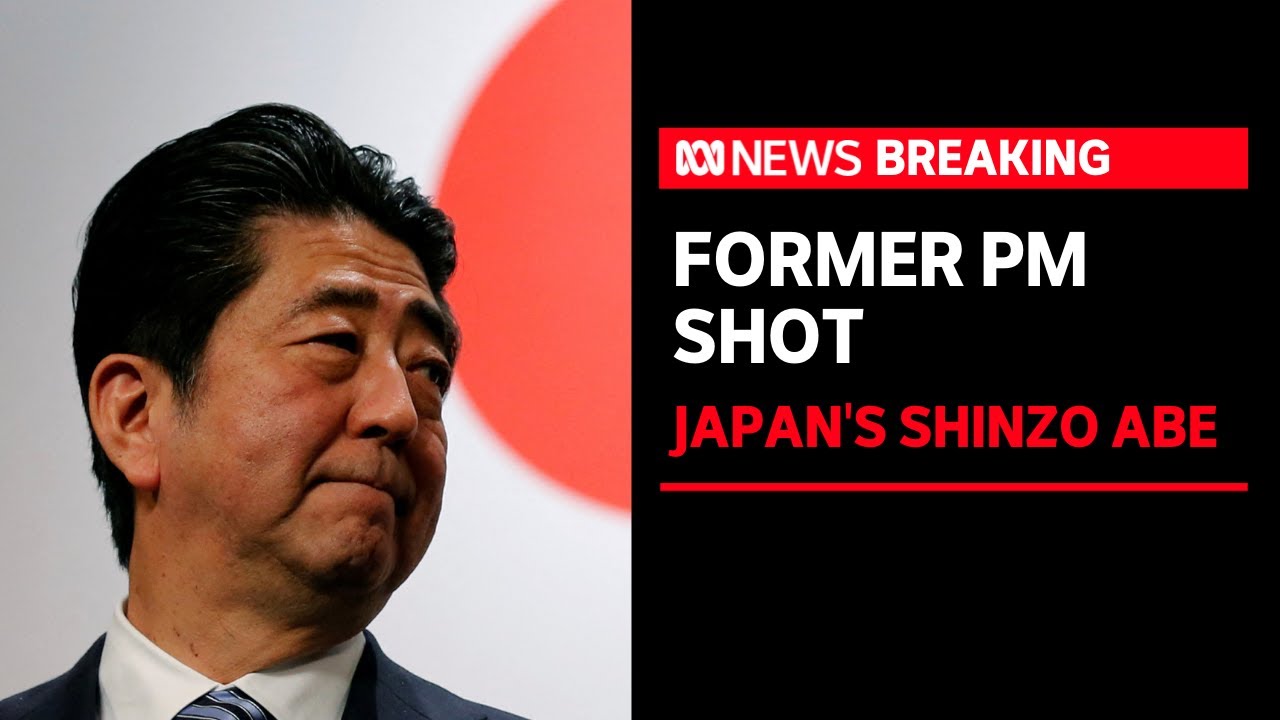
Former Japanese Prime Minister Shinzo Abe shot during speech, suspect arrested | ABC News
Videos posted on social media captured the scene at a three-way intersection in the city of Nara shortly after Shinzo Abe was shot.
A large group of Japanese people, many of them wearing orange campaign shirts and some of them knelt, had gathered close to a red box where Mr. Abe had reportedly been sitting when he was shot while giving a speech during the campaign. A woman who was sobbing was led away. It was difficult to see Mr. Abe.
A passerby exclaimed, "I can’t believe it. Who shot him?" Another person requested a medical professional while speaking on a loudspeaker.
A small group of individuals could be seen several yards distant in the aerial video, looking to be carrying someone. Larger numbers of onlookers observed from a sidewalk.
Mr. Abe was supporting a candidate in the Sunday elections for the Upper House of the Japanese Parliament. After the shooting, officials said that all campaigns had been put on hold.
Mourners Around The World
Mourners have begun placing flowers near the site where Abe was assassinated in Nara, Japan.
Meanwhile, Prime Ministers, Foreign Secretaries, and Presidents all around the world gave their condolences and sympathies to former Prime Minister Abe's family and to the whole nation of Japan.
Prime Minister Mark Rutte of the Netherlands said on Twitter, “At today’s cabinet meeting we paused to reflect on this dark day for Japanese democracy. I have fond memories of our friendship and the work we did together.” He added that the attack on Abe was 'cowardly.'
Prime Minister Mario Draghi praised Abe for "his innovative spirit, his reforming vision," and referred to him as a "protagonist in recent Japanese and international politics," adding that Italy was "shocked by the terrible attack, which affects Japan, its free democratic debate." Italy was "close to his loved ones, to the government and the entire Japanese people," according to Mr. Draghi.
The Irish foreign and defense minister, Simon Coveney, posted on Twitter that his country's sympathies were with all of the people of Japan, "Our thoughts are with all Japanese people at this very sad time."
In a telegram to Abe's wife, South Korean President Yoon Suk-yeol expressed his “condolences and sympathy to the bereaved family and the people of Japan over the loss of its longest-serving former prime minister and a respected politician,” according to his office. Yoon referred to the assault as an “intolerable act of crime.”
Czech Republic Prime Minister Petr Fiala posted on Twitter that he was "deeply saddened" and that he was sending his sympathies to his family and the people of Japan.
"Japan has lost a great Prime Minister, who dedicated his life to his country and worked for world balance," France's President Emmanuel Macron wrote on Twitter on Friday.
The Philippine Department of Foreign Affairs stated on Twitter that "Mr. Abe was greatly admired by many Filipinos. We thank him for his key role in the strengthening of Philippines-Japan relations and for establishing a very deep bond of friendship with our country."
Abe was described as the island's "precious democratic partner" and "staunchest friend" by Taiwan's foreign ministry. In a previous op-ed in the Los Angeles Times, he had urged the US to make it clear that it would defend the independent island against any Chinese invasion attempts in the wake of Russia's invasion of Ukraine.
Volodymyr Zelensky, the president of Ukraine, expressed his sympathies on Twitter, writing, "This heinous act of violence has no excuse."
Gun Violence Is Rare In Japan
In a nation with some of the strictest rules regarding the purchase and ownership of firearms, the attack on former Japanese Prime Minister Shinzo Abe was especially shocking.
According to data from the nation's National Police Agency, 10 gunshots in Japan were reported in 2021 that resulted in deaths, injuries, or property damage. One person was killed and four others were hurt in those gun-related incidents. Accidents and suicides are not included in the statistics.
According to Japan's firearms law, guns are generally not allowed in the nation. Although there are exceptions for hunting-related firearms, very few people go through the inconvenience of owning a firearm because the licensing process is time-consuming and expensive.
Before being able to purchase a handgun, a person must complete 12 steps, beginning with a gun safety course and continuing with a written test that is given three times a year.
The physical and mental health of the gun purchaser must be certified by a doctor. A thorough background investigation and a police inspection of the ammo locker and gun safe, which are required to store guns and ammunition, are additional stages.
According to the police department, there were around 192,000 licensed firearms in the nation in 2020, with shotguns and hunting rifles making up the vast majority of those weapons. That is less than Alabama's total number of registered firearms, which has a population that is around one-twentieth that of Japan.
It's unclear how the suspect in the Abe killing was affected by the laws governing gun ownership in Japan. Videos and pictures suggested that the involved gun was a homemade creation.
Former Prime Minister Shinzo Abe's Legacy
Prior to his resigning in 2020 due to ill health, Abe had spent two terms as prime minister, making him the longest-serving leader in Japanese history.
He still maintains a stronghold over the ruling Liberal Democratic Party (LDP), nonetheless, and is in charge of one of its key groups.
Prime Minister Fumio Kishida, his protege, will run in the upper house election on Sunday in an effort, according to observers, to break out of Abe's shadow and establish his premiership.
The "Abenomics" approach, which comprised audacious monetary easing and fiscal spending, is what made Abe most famous.
Additionally, after years of decreases, he increased the defense budget and increased the military's capacity to project power abroad.
His government changed the post-war, pacifist constitution in 2014, marking the first time since World War Two that forces might engage in combat abroad.
A ban on using the right to collective self-defense or defending a friendly country under assault was lifted the next year thanks to legislation.
However, Abe was unable to accomplish his long-held objective of amending the U.S.-drafted constitution by incorporating the pacifist Article 9 into the name of Japan's military, the Self-Defense Forces.
He cherished the desire to preside over the Olympics, which were delayed by a year to 2021 because of the COVID-19 epidemic, and was essential in helping Tokyo win the 2020 Olympics.
As Japan's youngest prime minister since World War Two, Abe first assumed office in 2006. Following a year marred by political scandals, voter indignation over misplaced pension records, and a crushing defeat for his ruling party in the elections, Abe resigned, citing poor health.
- 1954: Abe was born in Tokyo on September 21, 1954. He is the grandson of former prime minister Nobusuke Kishi and the son of former foreign minister Shintaro Abe.
- 1977: After earning a political science degree from Seikei University in Tokyo, the student relocates to the United States to spend three semesters studying public policy at the University of Southern California.
- Work at Kobe Steel begins in 1979 while the company is growing internationally.
- 1982: Quits the business to pursue new opportunities with the government's Liberal Democratic Party and the Foreign Ministry.
- 1993: First chosen to serve as an LDP lawmaker for Yamaguchi, a prefecture in the southwest. Abe, who is already thought of as being conservative, is a part of the party's Mori faction, which was formerly led by his father, who passed away in 1991.
- 2005: Prime Minister Junichiro Koizumi appoints Abe as chief cabinet secretary, and he oversees efforts to secure the release of kidnapped Japanese nationals from North Korea. He wins the LDP leadership election in the same year, putting him in a position to succeed as the current prime minister.
- 2006: On September 26, 2006, Abe is appointed as Japan's first prime minister. He oversees economic reforms while taking a tough stance against North Korea and attempting to engage with China and South Korea.
- 2007: Abe steps down as prime minister, citing health concerns, following electoral losses that caused the LDP to lose control of the legislature for the first time in 52 years. Abe has ulcerative colitis, but he has been able to manage it with medication.
- 2012: Abe wins re-election as LDP president and his appointed prime minister for a second time.
- 2013: Abe introduces his "Abenomics" plans, which include structural reforms and easy lending, in an effort to spur economic growth. After Abe talked with Chinese President Xi Jinping at the APEC summit in Beijing, Japan's relations with China go through a particularly difficult period but start to improve.
- 2014–2020: He is reelected as LDP leader and is prime minister for a total of four terms, during which he establishes close ties with then President Donald Trump by attending summits and playing golf together.
- 2020: On August 28, 2020, he makes the announcement that he is resigning as prime minister due to health concerns as his ulcerative colitis flares up once more. Abe was already the longest-serving prime minister in Japan at that moment.
- 2021: After leaving the government, Abe demonstrates that he still has the ability to inflame Beijing with remarks regarding Taiwan, the independent island that China claims as its own and has threatened to assault. Abe cautioned that "military expedition will lead to economic suicide" in a speech.
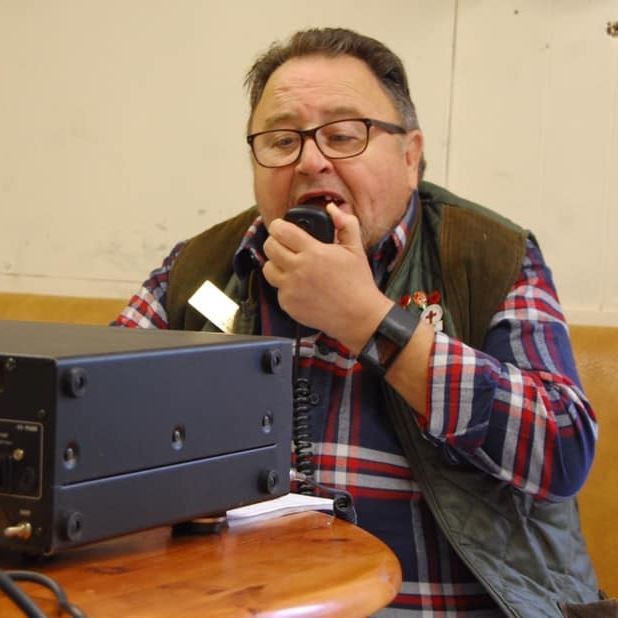
Alex Mercer
Author
Alex Mercer is a seasoned author and analyst specializing in wealth research, with a keen focus on evaluating the net worth of individuals across various industries. With over a decade of experience in financial analysis and wealth assessment, Alex has developed a nuanced understanding of the factors that contribute to an individual's financial status, from investments and assets to market trends and economic policies. His work involves in-depth reviews and analyses, providing insightful observations on wealth accumulation, management strategies, and the socio-economic implications of wealth distribution.
Throughout his career, Alex has become known for his ability to distill complex financial data into understandable and engaging narratives, making the subject of wealth and net worth accessible to a broad audience. His expertise is not just in numbers but in telling the stories behind them, highlighting the journeys, strategies, and decisions that lead to financial success or challenges. Alex's contributions to the field of wealth research are valuable resources for anyone looking to understand the dynamics of wealth in today's world, offering a unique perspective that bridges the gap between financial analysis and human interest.
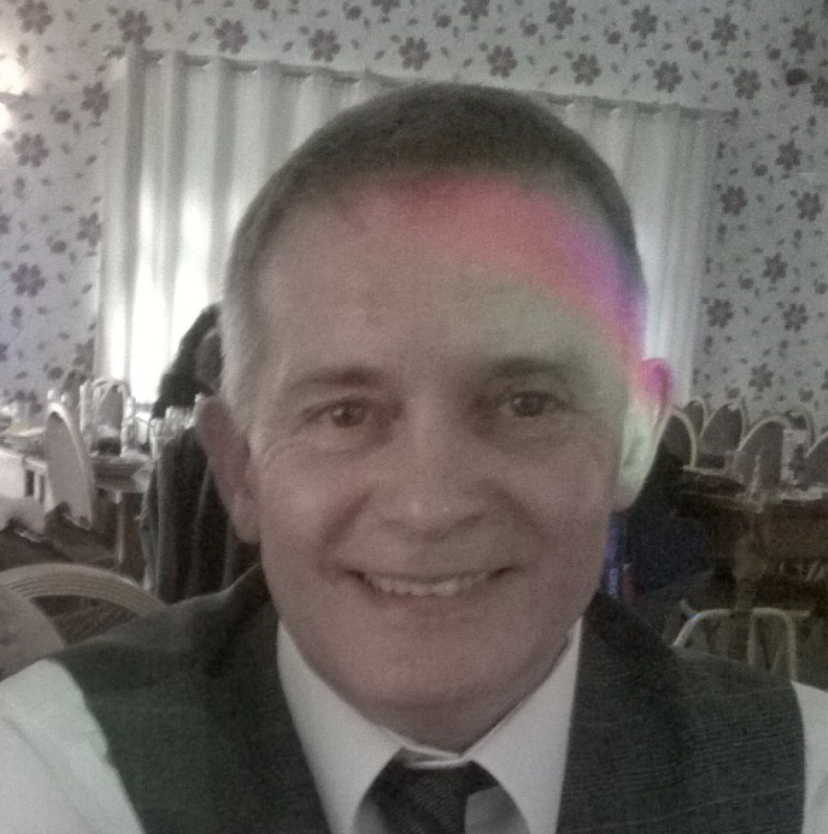
Nathanial Blackwood
Reviewer
Nathanial (Nate) Blackwood is a distinguished financial journalist with a decade of experience in net worth analysis. He holds an Economics degree from the University of Finance and a Data Analysis certification, enabling him to blend thorough insights with engaging storytelling. Nate is known for making complex financial information accessible to a wide audience, earning acclaim for his precise and reader-friendly analyses. Beyond his writing, Nate is dedicated to financial literacy, actively participating in educational forums and workshops.
He is the founder of PureNetWealth, a platform that demystifies the financial achievements of public figures by exploring the strategies and decisions behind their fortunes. Nate's work bridges the gap between intricate economic concepts and the general public, inspiring a deeper understanding of wealth dynamics. Follow Nathanial Blackwood for essential insights into the financial narratives shaping our world.
Latest Articles
Popular Articles
